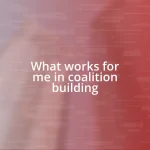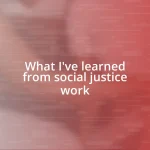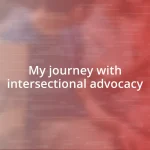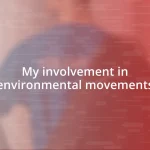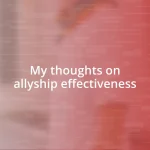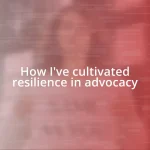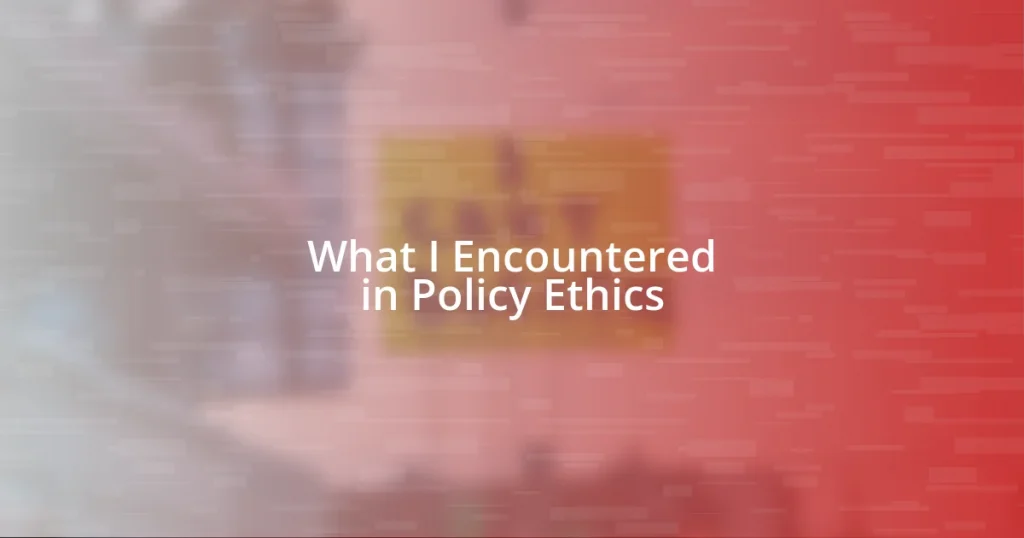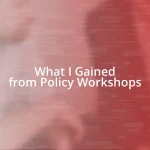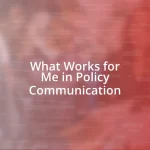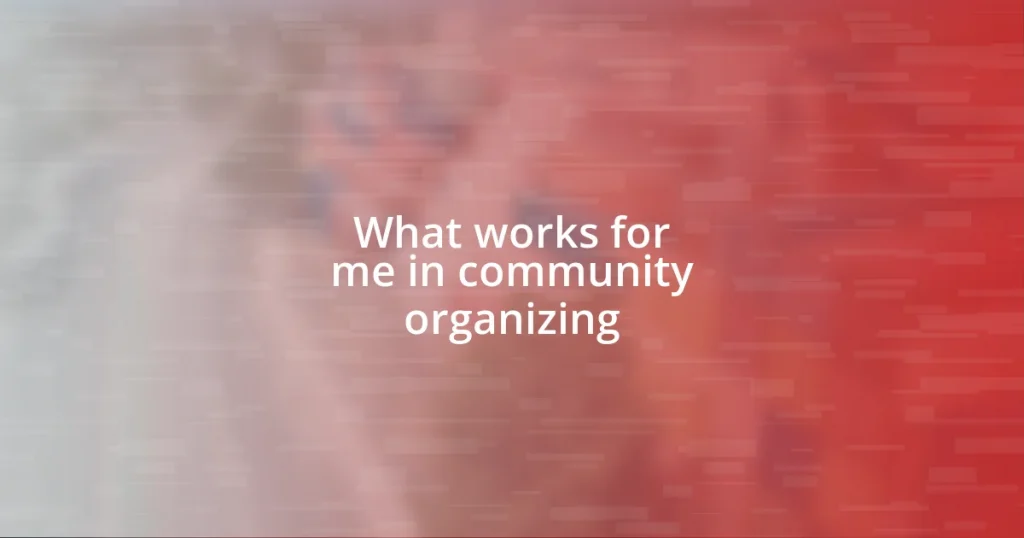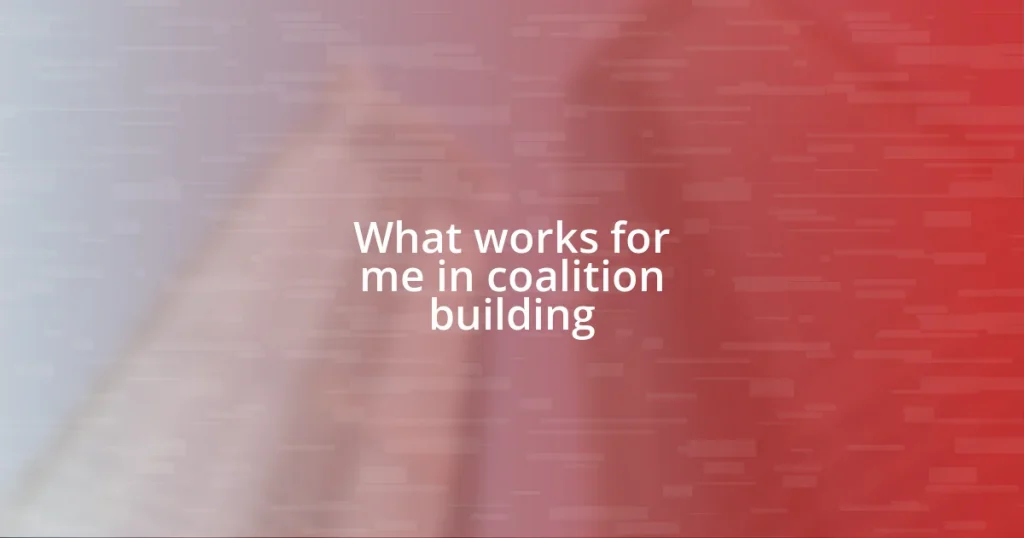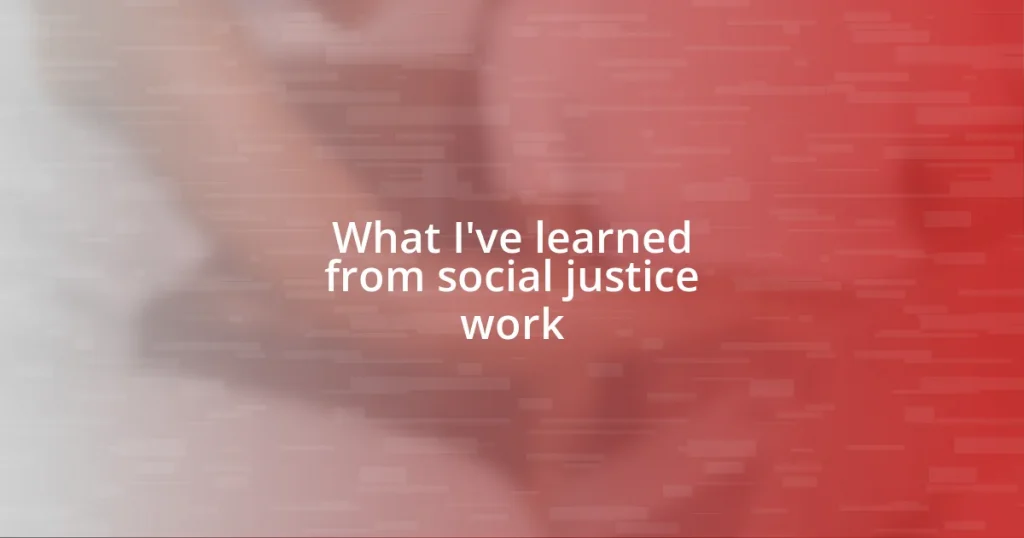Key takeaways:
- The integration of ethical frameworks in policy development is crucial for ensuring equitable outcomes, balancing competing interests, and addressing real-life impacts on communities.
- Stakeholder engagement is essential in shaping ethical policies, as diverse perspectives can lead to more inclusive and accountable decision-making processes.
- Future trends in policy ethics will focus on ethical considerations in technology and AI, global cooperation for addressing ethical challenges, and increased citizen engagement in policy-making.
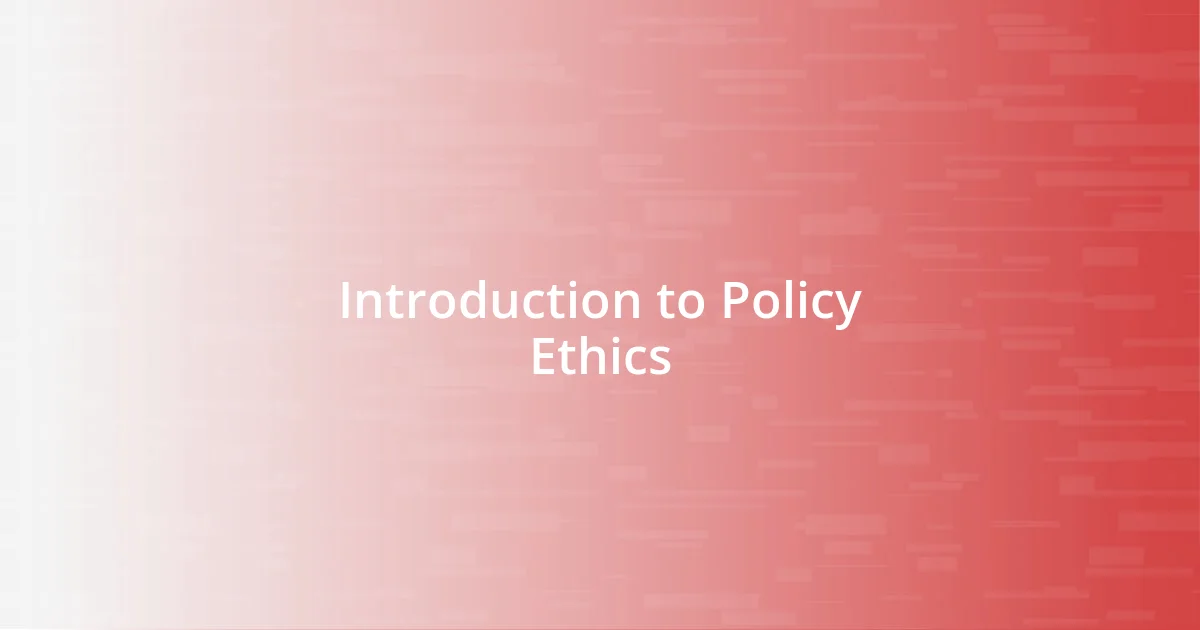
Introduction to Policy Ethics
Policy ethics is a fascinating field that revolves around the principles guiding decision-making in public policies. I remember attending a seminar where a pivotal question was raised: How do we ensure that ethical considerations permeate every layer of policy development? That moment sparked my interest and made me realize that ethics isn’t just an abstract concept; it’s a vital part of shaping a fair society.
Delving deeper, I’ve encountered various instances where ethical frameworks are put to the test. For example, during a project on healthcare access, I witnessed firsthand the crucial balance between policy efficiency and equity. It made me wonder—how do we prioritize ethical standards when decision-makers face competing interests? These dilemmas illuminate the complex landscape of policy ethics, where the stakes often involve real lives and communities.
Through my experiences, I’ve come to appreciate that policy ethics isn’t merely an academic discipline; it deeply influences the policies that govern our daily lives. I’ve found that even small discussions about ethical implications can lead to profound insights and inspire better practices. Isn’t it incredible how a commitment to ethics can reshape the way we think about the policies that impact us all?
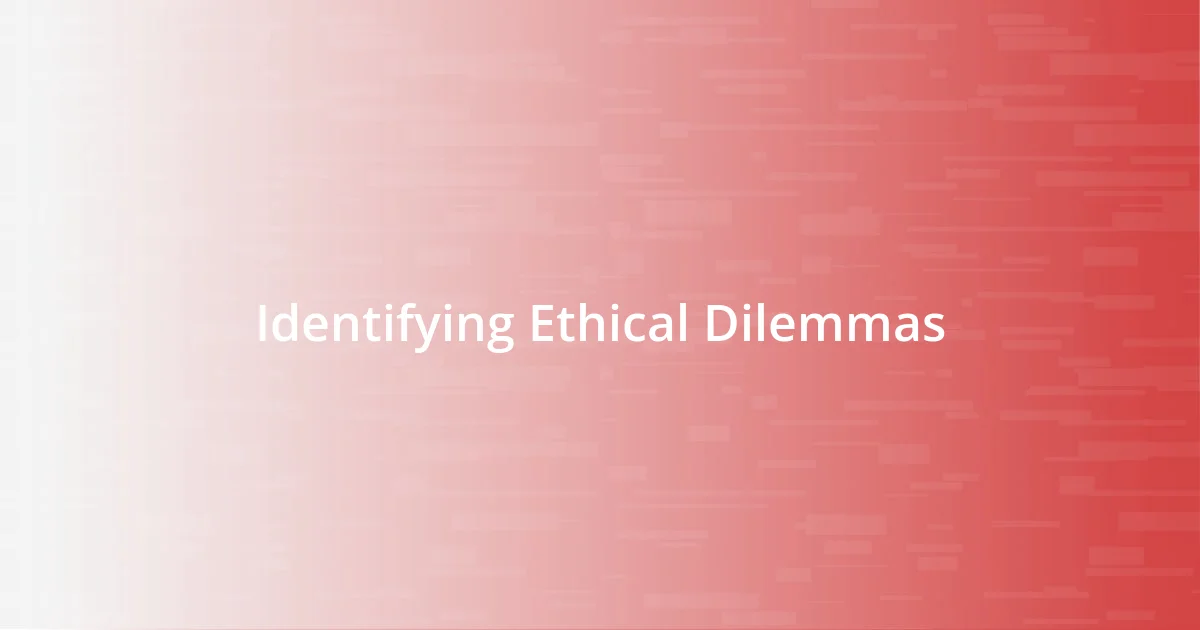
Identifying Ethical Dilemmas
Identifying ethical dilemmas is often a nuanced process that requires keen observation and reflection. In my experience, the most challenging dilemmas come into play when personal values clash with institutional policies. For example, I once worked on a team evaluating a new environmental regulation. Some members were eager to push it through for political gain, while others argued for the long-term environmental impact on vulnerable communities. This conflict forced us to confront the ethical implications of our decisions, which is something that often gets lost in the hustle of policy development.
To help pinpoint ethical dilemmas, consider these guiding questions:
- Are decisions being made in the best interest of all stakeholders?
- What are the potential benefits and harms of the proposed policy?
- How do personal biases influence the decision-making process?
- Are we adhering to established ethical frameworks?
- Whose voices are included in the conversation—and whose are excluded?
By asking these questions, we can better navigate the murky waters of ethical decision-making and move toward more equitable outcomes. Each dilemma we face is a chance to reassess our priorities and reaffirm our commitment to ethical principles in policy work.
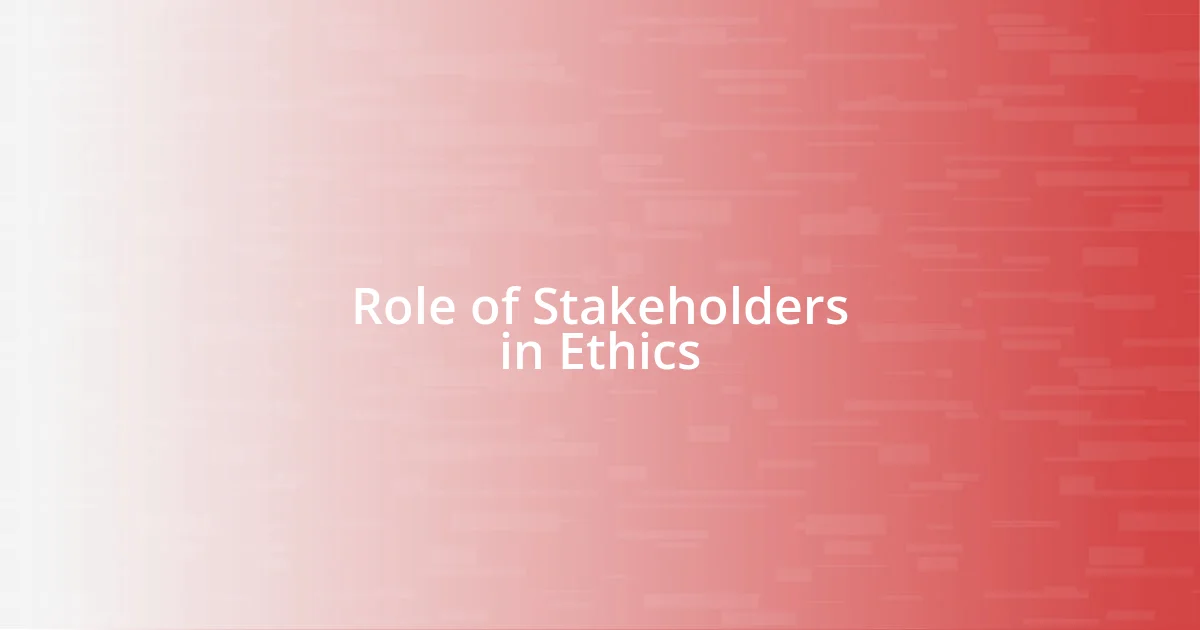
Role of Stakeholders in Ethics
The role of stakeholders in ethics is crucial. I’ve often reflected on how each stakeholder brings unique perspectives that can shape the ethical landscape of a policy. For instance, while working on a housing policy project, community members voiced concerns that had been overlooked. Their insights led to important modifications, highlighting how stakeholder involvement is vital in forming ethical guidelines that genuinely reflect the needs of those affected.
Stakeholders can also serve as advocates for ethical considerations, holding decision-makers accountable. I remember collaborating with an environmental advocacy group on regulations affecting local wildlife. Their passionate arguments and data-driven research shifted the narrative, pushing for a more ethical approach that considered both ecological integrity and human activity. It reinforced my belief that stakeholders aren’t just passive recipients of policies; they actively influence the ethical standards we should uphold.
In my experience, ethical discussions become richer and more nuanced when diverse stakeholders are invited to the table. Throughout a healthcare initiative I participated in, we engaged with patients, providers, and policymakers alike. The varied viewpoints encouraged respectful debates about values, priorities, and trade-offs. This collaborative environment not only fostered more ethical policy outcomes but also made the entire process feel inclusive and just, something I believe is essential in any ethical framework.
| Stakeholder Type | Role in Ethics |
|---|---|
| Community Members | Provide firsthand experiences and needs, shaping ethical considerations in policies. |
| Advocacy Groups | Champion specific ethical issues, holding policymakers accountable for ethical standards. |
| Policymakers | Design and implement policies, ensuring ethical frameworks guide decision-making processes. |
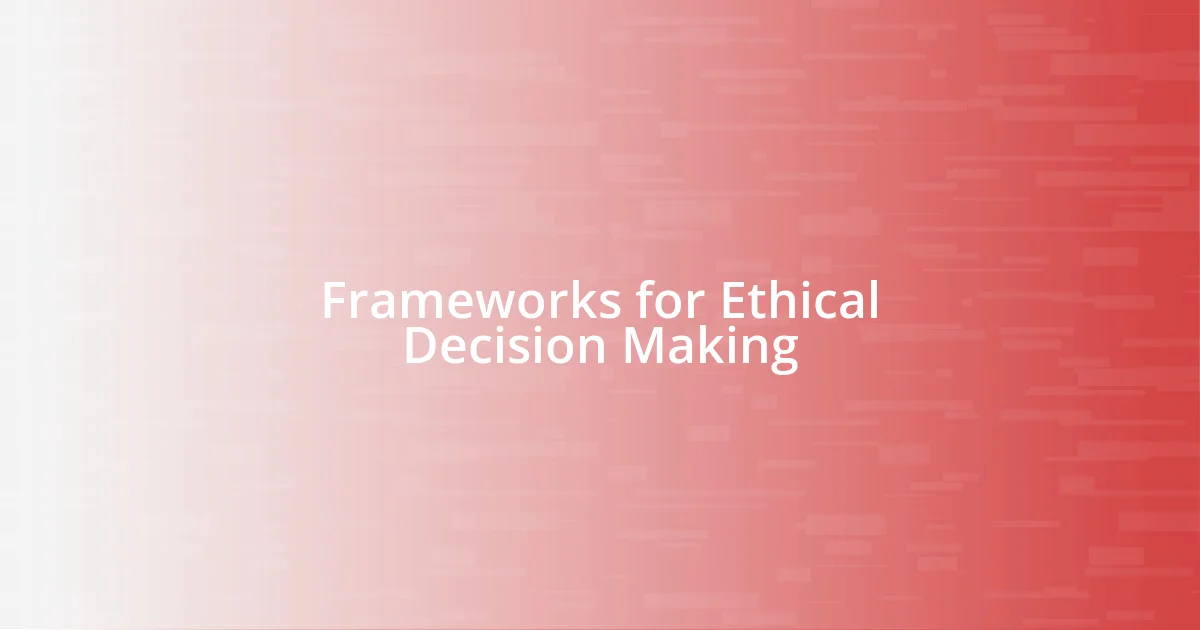
Frameworks for Ethical Decision Making
When considering frameworks for ethical decision-making, I often reflect on how essential a structured approach can be. I remember a time when I was involved in creating a new policy for public health, and we leaned heavily on the principles of utilitarianism, which emphasizes the greatest good for the greatest number. This framework forced us to weigh potential outcomes carefully, but it also prompted difficult conversations about whose well-being to prioritize—an unsettling but necessary debate that pushed us to think deeply about ethical implications.
Another framework that has often shaped my thoughts is the Rights-Based Approach, which insists on respecting individual freedoms and entitlements. During a project aimed at addressing systemic inequalities in education, I vividly recall grappling with the ethical responsibilities we had towards marginalized students. It became clear that adhering to this framework meant actively challenging existing structures, asking myself questions like, “Am I truly standing up for those whose voices tend to be silenced?” This reflection reinforced my commitment to justice and accountability in policy-making.
Lastly, I can’t overlook the role of virtue ethics in guiding my decisions. This approach focuses on the character and integrity of those involved in the decision-making process. During a heated debate about healthcare policies, I found myself often questioning my own motivations: “Am I acting in accordance with the values I hope to promote?” By consistently aligning my actions with my core principles, I discovered how this introspective approach could foster not only trust among team members but also inspire others to consider the moral implications of their own actions. This journey has taught me that ethical decision-making isn’t just about the outcomes; it’s about cultivating a culture of integrity.
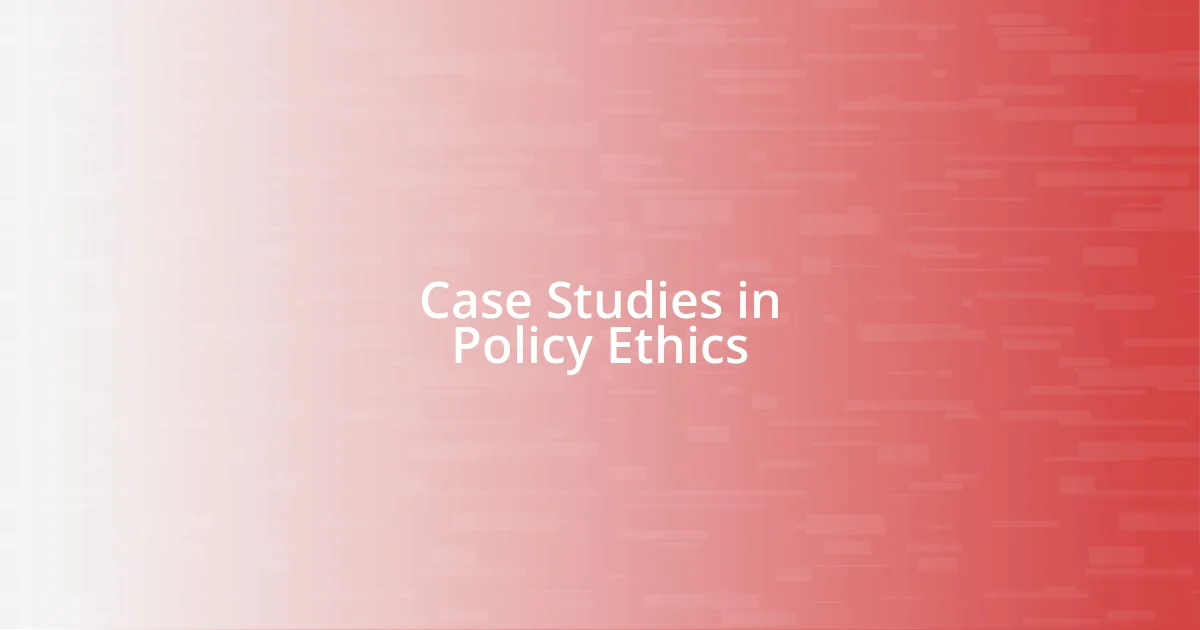
Case Studies in Policy Ethics
In my experience with policy ethics, I’ve encountered a compelling case involving climate change regulations. While working on a project aimed at reducing carbon emissions, I recalled the powerful testimony from a small fishing community affected by rising sea levels. Their stories resonated with everyone in the room; it was a vivid reminder that policy isn’t just about numbers—it’s about real lives. Asking myself, “How can we create regulations that consider both environmental goals and human impact?” pushed our team to devise a more balanced approach.
Another case that stands out is around the ethical implications of data privacy in technology policies. I remember a dialogue during a tech summit where a privacy advocate challenged the assumption that data collection always serves public interest. It made me rethink: “Whose knowledge are we prioritizing?” This conversation opened my eyes to the necessity of transparency and accountability in tech policies, shaping a narrative that champions individual rights while still pushing for innovation.
Additionally, I was involved in a healthcare reform initiative where we grappled with access issues among marginalized populations. A poignant anecdote emerged from a focus group discussion with low-income families struggling to access services. I was left questioning, “What does equitable access really look like?” This experience underscored a critical step in policy development: engaging deeply with those who face barriers, ensuring that the ethical considerations we advocate for are not just theoretical but grounded in lived experiences.
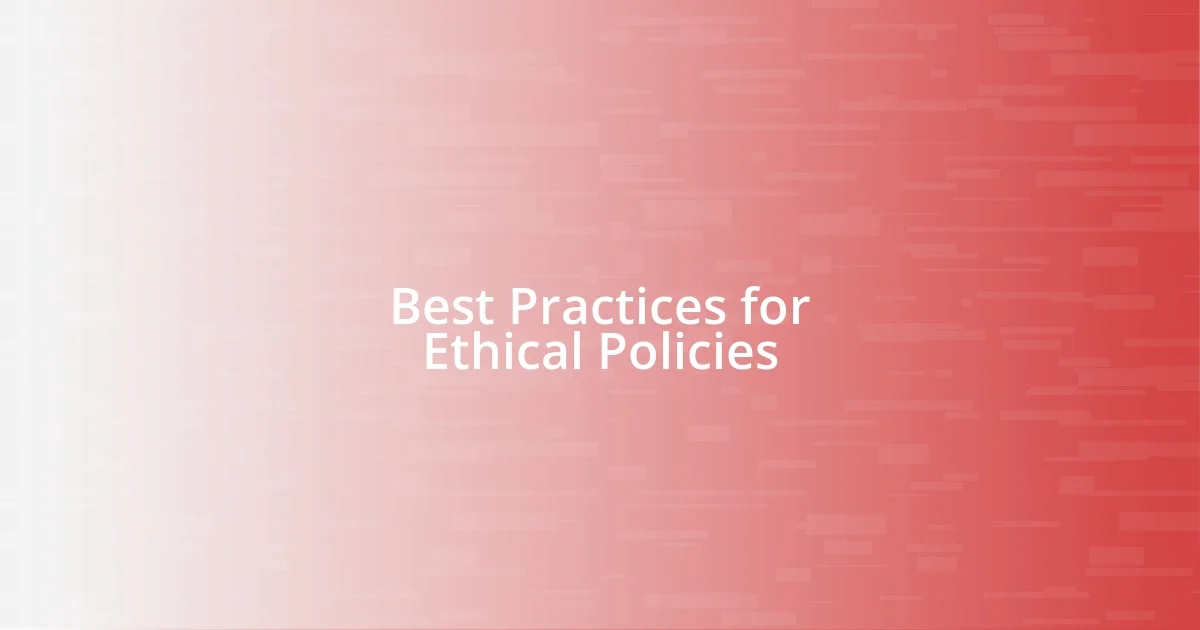
Best Practices for Ethical Policies
When it comes to establishing ethical policies, I’ve learned that integrating stakeholder feedback is non-negotiable. During a community forum for a new housing policy, I distinctly recall the heartfelt stories shared by residents about their struggles and aspirations. It struck me that without this input, we risked creating policies that were out of touch with the very people they were meant to help. This experience highlighted for me the importance of ensuring that voices from diverse backgrounds are not just heard, but actively shape the outcomes.
Another best practice that stands out in my mind is the necessity of continuous training on ethics for all stakeholders involved in policy-making. While being part of a training session for policymakers, I was moved by a discussion on real-world ethical dilemmas, such as how to address conflicts of interest effectively. It made me reflect, “How prepared are we to handle these complex situations?” Regular training ensures that ethical considerations remain forefront, empowering individuals to navigate challenging scenarios with confidence and integrity.
Finally, I can’t stress enough the value of transparency in the policy development process. In a previous project, we decided to publicly document our decision-making criteria. I remember feeling anxious but hopeful as we faced the scrutiny of both supporters and critics. This openness not only built trust but also encouraged constructive dialogue. It’s a reminder that when we lay our cards on the table, we foster a culture where ethics becomes an integral part of the discussion rather than an afterthought.
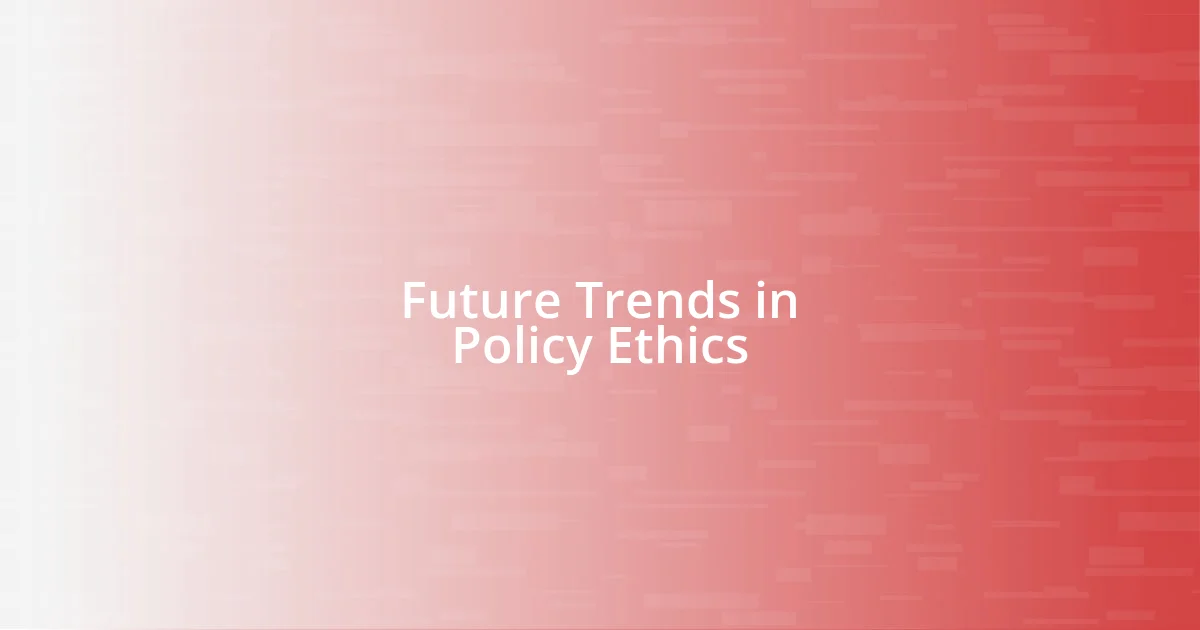
Future Trends in Policy Ethics
As I look ahead, I see a growing emphasis on ethical AI in policy-making. I vividly recall a workshop where experts debated how algorithmic decisions can inadvertently reinforce biases. It made me wonder, “Are we ready to address the ethical implications of technology that influences lives?” The conversation underscored that future policies must not only address technological advancements but also their ethical dimensions, ensuring fairness and accountability remain at the forefront.
Another trend I foresee is the increasing importance of global cooperation in addressing ethical challenges. During a recent international summit, I was struck by how interconnected our issues are, particularly around migration policies impacted by climate change. It left me pondering, “How can we collaborate across borders to develop ethical standards that respect human dignity?” In this era of globalized communication, I believe that our collective efforts can lead to more robust policy frameworks that prioritize ethics.
Lastly, I feel that the rise of citizen engagement is reshaping the landscape of policy ethics. I participated in a local initiative where community members came together to brainstorm solutions for public health challenges. Witnessing their passion and insights sparks the question, “What if we let communities lead the conversation more often?” I believe that empowering citizens not only enriches policy discussions but also fosters a culture of accountability and ethical responsibility that is essential for the future.

